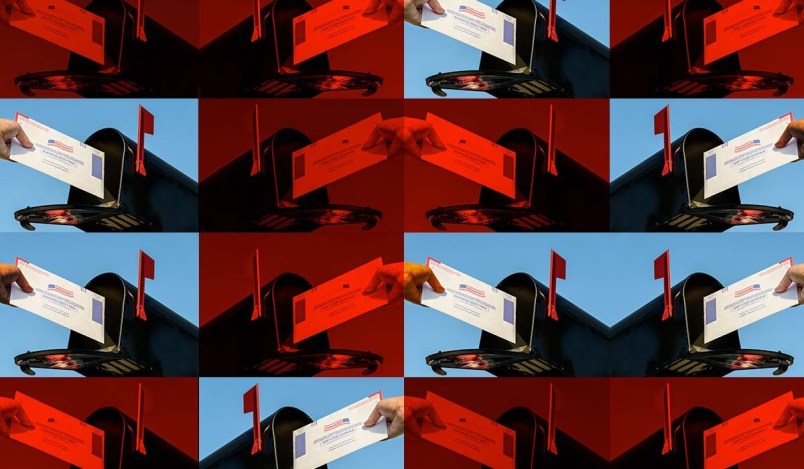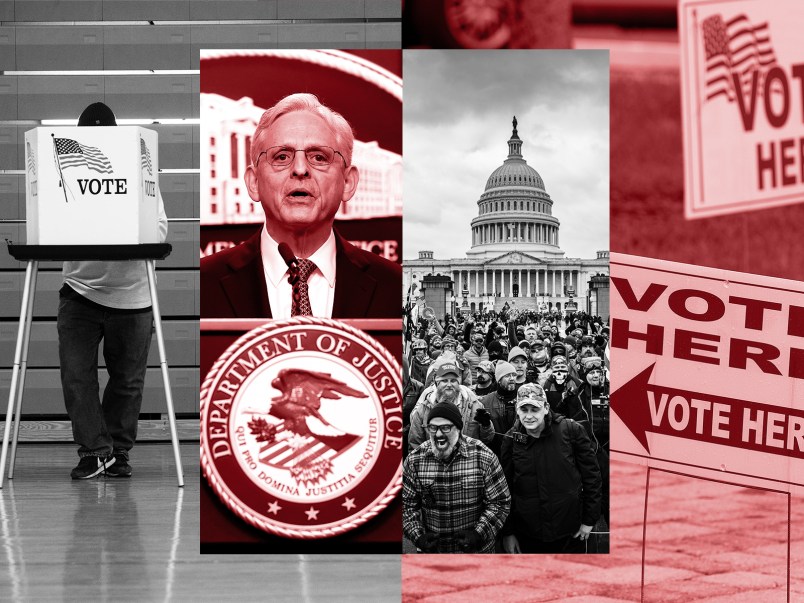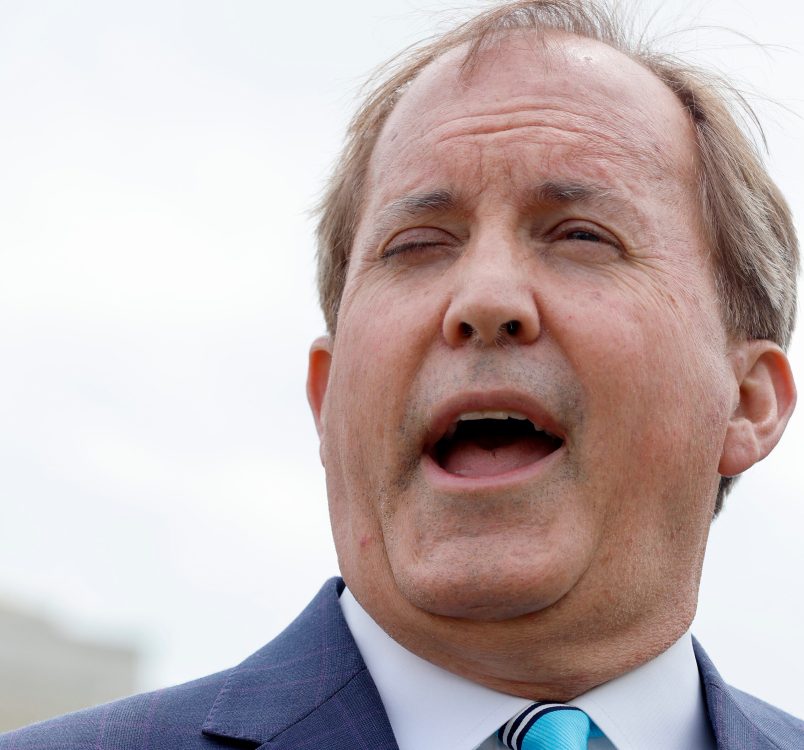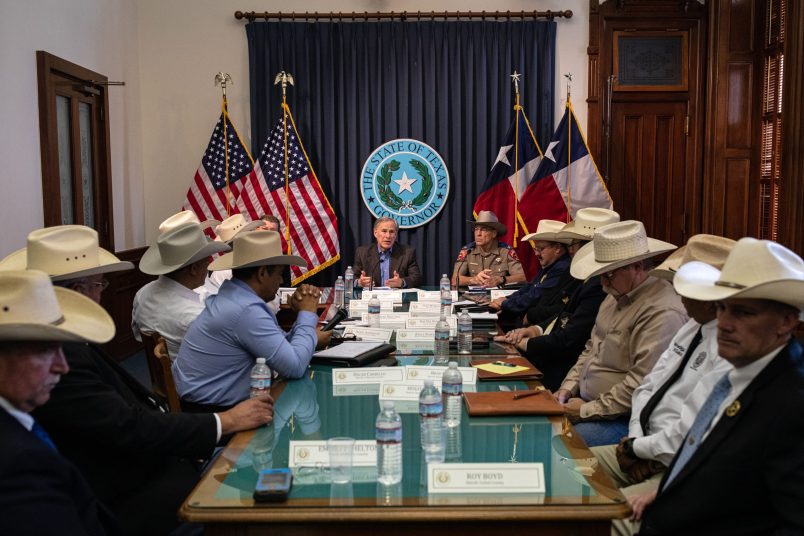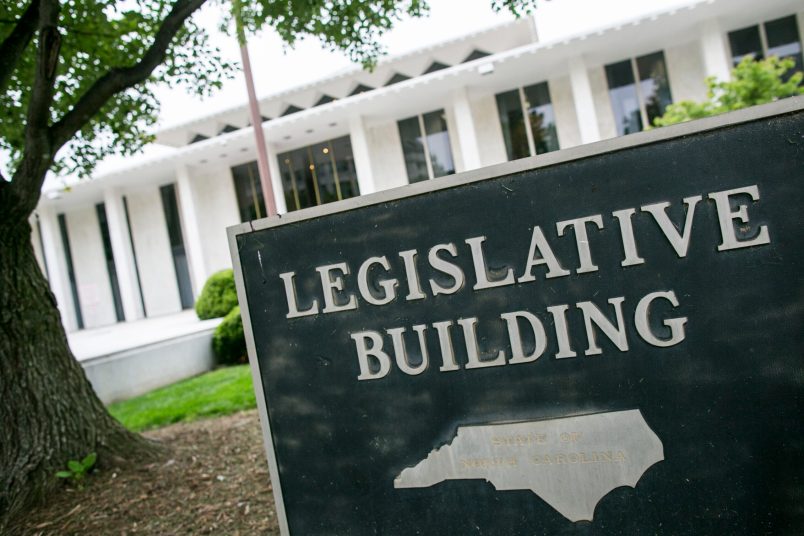As Texas’ first-in-the-nation primary on March 1 approaches, election administrators and voters are struggling to follow its provisions, many of which make it harder to vote.
The state secretary of state’s office has been unable or unwilling to provide the counties with adequate resources and information, and one new ID requirement in particular has helped send unprecedented numbers of ballots and applications into the reject pile.
Older and disabled voters, some of the few that get to vote by mail in Texas, have borne the brunt of the chaos, said Grace Chimene, president of the League of Women Voters of Texas.
“They’re consistent voters,” she told TPM. “They’re very upset that after all these years of voting, suddenly now their ballots and applications are being rejected.”
‘It’s A Disaster’: A New ID Number Requirement Causes Confusion
The omnibus elections law, signed in September over Democratic objection and a highly publicized walkout, requires that voters put down an ID number on applications for mail-in ballots and the ballots themselves.
The number, options for which include a driver’s license number and the last four digits of a social security number, must match whatever number the voters put on their registration form — requiring older voters to remember which number they used in some cases decades ago. If they’re old enough, some voters may not have had to provide any ID at all when they first registered.
If the number is missing, or a mismatch, election administrators have to try to reach the voter to fix the mistake and get the ballot or application back in again before the deadline. That requires manpower some counties just don’t have. And even in the bigger, more well-staffed county offices, the administrators have to reach more people.
The law only went into effect on December 2, leaving a very constrained timeline for administrators to learn the new rules and communicate them to voters.
“It is one thing to create new laws and another to implement them,” Leah Shah, director of communications and voter outreach in Harris County, told TPM. “Implementing new laws so soon before a primary has caused a lot of administrative challenges. And it has not allowed for counties or the state to educate voters about these changes — a combination of challenges that has resulted in a lack of understanding and general public misinformation.”
Last-Minute Litigation Froze Part Of the New Law
A federal judge on Friday blocked one of the more onerous provisions of the election law, which barred election officials from soliciting mail-in ballots. If they did so, they risked at least six months in jail and a $10,000 fine.
The bizarre provision was state legislators’ response to a 2020 attempt by a Harris County election administrator to send mail-in ballot applications to all registered voters in the county.
The judge found that the election administrators’ right to free speech covered the promotion of mail-in voting.
The decision may ease some of the stress on election officials, though it comes late in the process: the last day to apply for a mail-in ballot is February 18, according to the Texas Secretary of State’s website.
Poll Watchers Could Be Newly Empowered
A potential source of tension from the new legislation that has yet to be fully felt is the impact of the law’s provisions empowering poll watchers. One Austin-area administrator told the Washington Post that their looming presence, enhanced by new protections, was chilling his efforts to recruit poll workers. Others worry that poll watchers will intimidate voters from showing up on primary day, though many anticipate that they won’t play a big role until the general election.
Chimene said she expected issues to arise with voters who can’t read Spanish or English, the languages in which the ballots are printed, and need to bring along an assistant to translate for them.
“I’m concerned they’ll be used as a tool to suppress the vote,” she said. “Do all poll watchers have evil intent? I don’t think so, many are there just to watch what’s going on. But in certain communities they have been used in the past, and probably will be in the future, to suppress the vote.”
Democrats’ Stalled Voting-Rights Push Means No Relief For Texas
The voting rights bills Senate Democrats failed to pass — the result of Sens. Kyrsten Sinema (D-AZ) and Joe Manchin (D-WV) voting with Republicans to uphold the filibuster last month — would have alleviated some of the election law’s ills.
The Freedom to Vote Act would offer more robust protections and leeway in terms of letting voters cure mistaken ballots — hugely important, given the new ID number system and the resultant flood of rejected ballots and applications before this primary. It would also combat some of the Texas legislators’ attempts to constrain mail-in voting by requiring that all states offer online ballot applications and multiple drop-off options, including drop boxes.
The bill would also enforce national standards for early voting, and give election workers stronger protections against partisan poll watchers.
Unfortunately for Texans, the bill has next to no chance of passing the Senate this term.
“I was so looking forward to having some help from federal legislation with the new voting rights bills,” Chimene sighed. “But now I foresee a future where we have to continue to fight these efforts to suppress the vote.”
Will The Law Backfire On Its GOP Supporters?
So far, one of the groups struggling the most with the law’s new provisions are older voters.
Older white voters in Texas comprise one of the Republican Party’s most reliable voting blocs. Voters 65 and older are among the very few who get to vote by mail in the state.
The potential rationales behind the provision vary: it could be an unintended consequence; it could be part of a plan to make voting hard across the board, and hope that the gains to the Republican Party ultimately outweigh the losses; it could just be an a-strategic outgrowth of former President Donald Trump’s war on mail-in voting.
It’s a big law, and the harms are many and diffuse. But at least in the lead-up to the primary, one of the biggest pain points has been concentrated among voters Republicans don’t want to lose.





